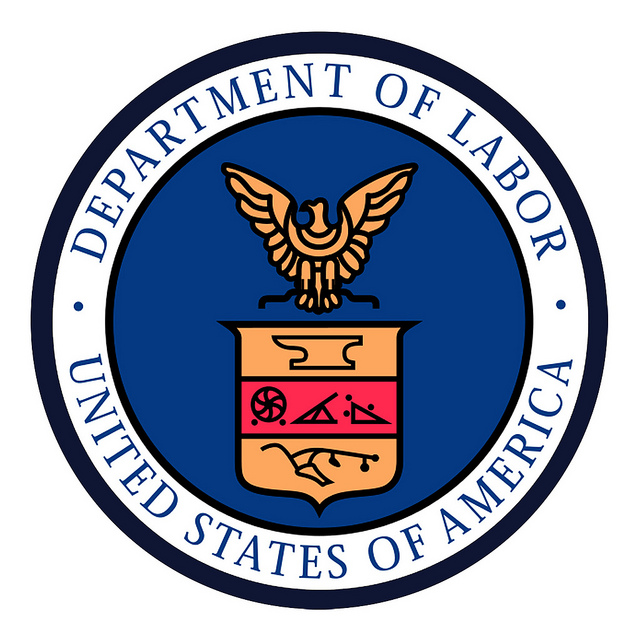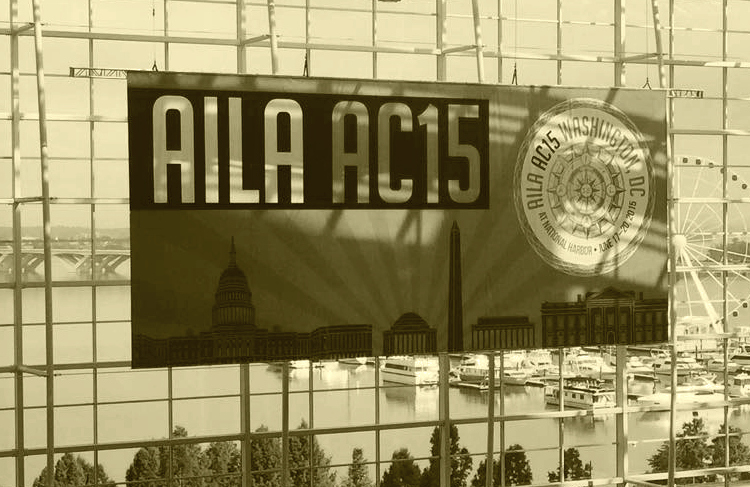
It is our pleasure to provide our readers with newly released statistics published by the Department of Labor’s Office of Foreign Labor Certification concerning the processing status of the PERM program and Prevailing Wage Determinations. The PERM graphic provides a breakdown for the review of applications certified during FY 2015 by the top 5 occupations, site states, industries, visa classifications, countries of citizenship, and minimum educational requirements. The graphic concerning the National Prevailing Wage Center outlines the determinations requests received for the H-1B program H-2B program, and PERM program FY 2015, breaks down prevailing wage actions, and issuance of prevailing wage determinations for PERM top 5 employers and occupations, H-1B top 5 employers and occupations, and H-2B top 5 employers and occupations.
Articles Posted in PERM – Labor Certification
Staff Spotlight: Associate Attorney Yingfei Zhou, Esq.

It is our pleasure to introduce our readers to Associate Attorney Yingfei Zhou, Esq who joined our firm in 2012. Attorney Zhou is an active member of the California State Bar, the New York State Bar, and the American Immigration Lawyers Association (AILA).
Ms. Zhou practices primarily on employment-based and investment-based immigration law. Ms. Zhou has experience in various aspects of business immigration, including employment-based permanent residence and nonimmigrant visas, as well as marriage-based immigration and citizenship matters. Specifically, she has provided counsel to clients in relation to employment in specialty occupation, nonimmigrant NAFTA professional visa, individuals with extraordinary ability and achievements, nonimmigrant trainee or special education exchange visitor visa, religious worker visa, E-2 treaty investor visa, waivers, applications for adjustment of status, employment certification (PERM) applications, motion to reopen/reconsider, re-entry permit, visa interviews, as well as extensive EB-5 investment immigration work.
Ms. Zhou received her Bachelor’s degree in Law (LL.B) from Zhejiang University, one of the top universities in China. She graduated with distinguished honor awarded by the Department of Education of Zhejiang Province and was editor-in-chief of law review of her law school in China. She subsequently attended Thomas Jefferson School of Law in San Diego, CA and obtained her Master’s degree in Law (LL.M.). Prior to joining the Law Offices of Jacob J. Sapochnick, Ms. Zhou has practiced in China for two years.
AILA: Open Forum Updates
Presently, attorneys Jacob Sapochnick, Esq., Ekaterina Powell, Esq., and Yingfei Zhou, Esq. from our office are in attendance at the 2015 American Immigration Lawyers Association (AILA) Conference on Immigration Law taking place in Washington, DC. Together, they have had the privilege of being present for an open forum where officials from the Department of State and the National Visa Center provided valuable information in regards to modernization of PERM, improvements in visa processing at the National Visa Center, technical issues experienced at U.S. Consulates abroad, H-1B fee announcements, and more!
Technical issues experienced at U.S. Consulates worldwide
1. In regards to technical issues causing delays in visa issuance at U.S. Consulates worldwide, visa issuance is currently frozen. No visas are currently being issued at any U.S. Consulates worldwide. U.S. Consulates are rescheduling appointments for visas that were affected by the technical issues. The DOS is working to repair the hardware, however it will not be until next week when all issues will be resolved. Due to this, there will be a backlog for visa issuance and it will take longer to schedule a consular appointment for a visa.
2. If a visa applicant was affected by the technical issues at a U.S. Consulate abroad and they need to retrieve their passport urgently, they will be able to retrieve their passport, however, in doing so, applicants will forfeit the visa fees they have paid, and will be issued a 221(g) visa denial letter. If applicants are still interested in receiving a visa, they must re-apply and re-pay any visa fees. Applicants who are re-applying must note on future applications that their visa was denied due to a technical glitch. Applicants from visa waiver countries who are concerned that the visa denial will automatically result in an ESTA denial can rest assured. ESTA submissions will not be denied based on the technical glitch. DOS has responded that the technical issues will not affect future visa applications. Continue reading
PERM Process: Demonstrating Qualifications and Business Necessity for an Employed based Green Card

The American Immigration Lawyers Association (AILA) recently released a report helping foreign workers and their employers answer the following question:
Where on the ETA Form 9089 should the employer enter the foreign worker’s qualifications which show that the foreign worker does in fact meet the minimum requirements to perform the job opportunity?
Such qualifications may include certifications, licensures, or other credentials. The ETA Form is meant to establish whether the foreign worker meets all of the qualifications for the job opportunity offered by their employer. The employer must list the foreign worker’s specific skills and other requirements for the job opportunity they are offering in Section H Question 14, and demonstrate that they in fact possess those skills and or requirements by utilizing Section K, and listing the foreign worker’s qualifications to prove that the requirements for the specified job opportunity listed in Section H have been met. Examples of qualifications that can be provided in Section K are; bar admissions, medical residency, ordination, professional exams, medical board certifications, professional certifications, teaching certificates, university or professional coursework, professional insurance, etc. For each special skill or requirement listed in Section H, the employer must demonstrate its respective business necessity. If not listed elsewhere, the qualifications to fulfill the job opportunity should be entered after all jobs held in the past three years are listed under Question 9 Job Details. It is advised that Question Numbers one to eight requesting job information can be left blank.
PERM Labor Certification: What are lawful reason to reject US Workers? (Smokers Not Welcome Here)
As part of the process of filing for a Green Card, a US Employer must obtain a Labor Certification from the Labor Department. The purpose is to demonstrate among other points, that no US Workers were available to fill the job in question. But what are some of the lawful reasons to reject US Workers? Can drinking and smoking habits come into play?
At a recent meeting with DOL representatives AILA inquired about the this topic. Approximately 21 states now allow employers to refuse to hire smokers/other tobacco users, or to make non use of tobacco a condition of employment.
a. Where such a policy is allowed under state law, and where the employer (e.g. a hospital) has a uniform policy of not hiring tobacco users, should an employer disclose its tobacco policy in PERM recruitment, and/or on the ETA Form 9089, or would it be seen as an unduly restrictive requirement by the federal government even though allowable under state law?
PERM Labor Certification: Indicating Alternate Degree/Experience Requirements on Form ETA 9089
Great tip from AILA about how alternate degree and experience requirements are stated on the ETA 9089 and how those requirements are interpreted in adjudicating I-140 EB-3 skilled worker petitions. Recently we have seen too many Requests for Evidence concerning this issue.
The situation arises most commonly where the stated minimum requirement for the position is a bachelor’s degree, but the beneficiary obtained a 3-year bachelor’s degree. In particular, where no alternative requirement is provided in H-8 on the ETA 9089, but degree equivalency language is included in H-14, Nebraska Service Center has stated that the information in H-14 appears to contradict the “no alternative requirements” indicated at H-8.
AILA advised NSC, as confirmed by BALCA, that information included in H-14 is intended clarify and not contradict information provided in the more limited checkbox format provided elsewhere in Section H. See, e.g., Matter of General Electric Co., 2011-PER-02696 (BALCA, Jan. 22, 2013);
PERM Labor Certification Complicated Audit issues: Whether or not qualified workers applied for the position?
PERM Audits have become more routine in recent years, our blog readers were sending questions about various aspects of that process. An audit, is the process by which certain PERM applicants are required to submit proof of their recruitment activities. A Certifying Officer can request an audit of any permanent labor certification application if he or she finds the application concerning in its content, recruitment activities, or the authenticity of the job opportunity. The Officer can also randomly select PERM applications for auditing.
AILA recently provided some tips regarding major Audit issues, one of the issue how do we respond to the issue of Qualified US Workers applying for the PERM job.
The Typical Audit question is as follows:
PERM Lacor Certification – Processing Statistics For FY2012
The Labor Department released statistics from DOL’s Office of Foreign Labor Certification for year-to-date FY2012, including total number of applications received, total number of applications processed, PERM processing priority dates, and breakdown of active PERM cases at the DOL. Interesting to see almost 1000 cases were denied that year, but more files were actually certified. See the Chart below for the statistics.
div style=”width:477px” id=”__ss_11642105″>Perm statistics 2012
PERM – How to obtain a Green Card through Employment?
PERM is the process for obtaining labor certification, the first step of the green card process for foreign nationals seeking permanent residence through their employment.
To obtain an approved PERM Labor Certification, the employer must prove (through newspaper advertising and other recruiting methods) that they were unsuccessful in recruiting a qualified U.S. worker for a certain position.
The employer must be prepared to hire the foreign worker on a full-time and permanent basis. Watch our Video to learn more, and yes you can subscribe to our You Tube Channel as well, click here.
 Visa Lawyer Blog
Visa Lawyer Blog


